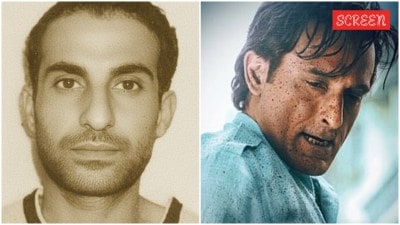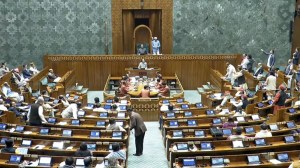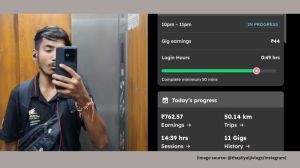Take a look at the essential concepts, terms, and phenomena from the static and current parts of the UPSC-CSE. Also, check the answer to the previous MCQ.

Subject- Geography and Economy
Relevance- Such concepts should be covered both from the static as well as dynamic point of view. Not only it is in news but also as a static concept is a potential topic to be asked in GS I or III. Also, Tilapia is in news. Have a slight idea about it too. Blue Revolution is an important topic to look into as well. Do not miss to solve the MCQ below.
Why in news?
According to PIB:
— TDB-DST (Technology Development Board – Department of Science and Technology) contributes to ‘Blue Revolution’ through technology intervention, supports sustainable & responsible development of fisheries sector in India”.
— TDB-DST enters new domain, funds its first ever ‘Aquaculture’ project using ‘state of the art’ Israeli technology for production of Tilapia Fish”.
— TDB-DST supports M/s Fountainhead Agro Farms Private Limited, Navi Mumbai, Maharashtra for ‘Advanced, Intensive, All Male Tilapia Aquaculture Project with Israeli Technology”.
What is Aquaculture?
— Aquaculture can be simply put as the controlled process of cultivating aquatic organisms, especially meant for human consumption.
— According to Food and Agriculture Organization (FAO) of the United Nations,
” The farming of aquatic organisms including fish, molluscs, crustaceans and aquatic plants. Farming implies some sort of intervention in the rearing process to enhance production, such as regular stocking, feeding, protection from predators, etc.”
Story continues below this ad
— Such a farming also implies individual or corporate ownership of the stock being cultivated, the planning, development and operation of aquaculture systems, sites, facilities and practices, and the production and transport.
Why is Fisheries important for India?
According to PIB:
— Fisheries is one of the fastest growing sectors amongst the primary producing sectors. The sector plays a vital role in the economic and overall development of the country, also referred as the “sunrise sector”, it is poised to bring in immense potential through equitable and inclusive growth.
— The sector is recognized as a powerful engine for providing employment to 14.5 million people and sustaining livelihood for 28 million fishermen community of the country. Thus, the sector urges young entrepreneurs of the country to come forward and offer solutions, resolving on-ground challenges through technology interventions and innovative solutions.
What is the Neel Kranti Mission?
— Blue Revolution, the Neel Kranti Mission has the vision to achieve economic prosperity of the country and the fishers and fish farmers as well as contribute towards food and nutritional security through full potential utilization of water resources for fisheries development in a sustainable manner, keeping in view the bio-security and environmental concerns.
Story continues below this ad
— Its vision is to create an enabling environment for integrated development of the full potential of fisheries of the country.
— Also, it aims to improve the income status of fishers and fish farmers keeping in view the sustainability, bio-security and environmental concerns.
— The objectives include:
To increase the overall fish production in a responsible and sustainable manner for economic prosperity
To modernise the fisheries with special focus on new technologies
To ensure food and nutritional security
To generate employment and export earnings
Story continues below this ad
To ensure inclusive development and empower fishers and aquaculture farmers
What is Pradhan Mantri Matsya Sampada Yojana?
— The cabinet under the chairmanship of Hon’ble Prime Minister, came up with ‘Pradhan Mantri Matsya Sampada Yojana (PMMSY)’ to bring about ‘Blue Revolution’ through sustainable and responsible development of fisheries sector in India.
— The scheme targets to enhance fish production to 220 lakh metric tons by 2024-25, at an average annual growth rate of about 9%. The ambitious scheme also aims to double the export earnings to Rs.1,00,000 crore and generate about 55 lakhs direct and indirect employment opportunities in fisheries sector over a period of next five years.
What is the latest development and ‘Tilapia’?
— Realising the potential of Fisheries sector, Technology Development Board, a statutory body under Department of Science and Technology, Govt. of India supports M/s Fountainhead Agro Farms Private Limited, Navi Mumbai, Maharashtra for ‘Advanced, Intensive, All Male Tilapia Aquaculture Project with Israeli Technology’.
Story continues below this ad
— The board has penned a mutual agreement, to provide loan assistance of Rs. 8.42 crores out of the total project cost of Rs. 29.78 crores to the company.
— ‘Tilapia’ has emerged to be one of the most productive and internationally traded food fish in the world.
— The culture of tilapia has become commercially popular in many parts of the world and fishery experts have dubbed the tilapia as “aquatic chicken” due to its quick growth and low maintenance cultivation.
— Today, if any fish could be named a global fish, no better name can be thought of than Tilapia. (PIB)
Story continues below this ad
Point to ponder: Land is almost exhausted and the ocean is where Indian scientists will carry out explorations in the coming years. Discuss in the light of the need of India’s policy on blue economy.
MCQ:
With respect to aquaculture, which of the following statements is not true?
a) Fishery experts have dubbed the tilapia as “aquatic chicken” due to its quick growth and low maintenance cultivation.
b) White spot disease caused by the WSSV has a major socio-economic impact on shrimp farming in India.
Story continues below this ad
c) Neel Kranti Mission aims to improve the income status of fishers and fish farmers keeping in view the sustainability, bio-security and environmental concerns.
d) Biofloc Fish Culture is the process of growing fishes in existing water resources while being enclosed in a net cage which allows free flow of water.
(sources: PIB, vikaspedia.in, dof.gov.in)
Answer to previous MCQ: UPSC Essentials: One word a day – NAMASTE (d)
Answer to previous MCQ: UPSC Essentials: Case Study of the week- Combating malnutrition the ‘Bharuch’ way (d)


































